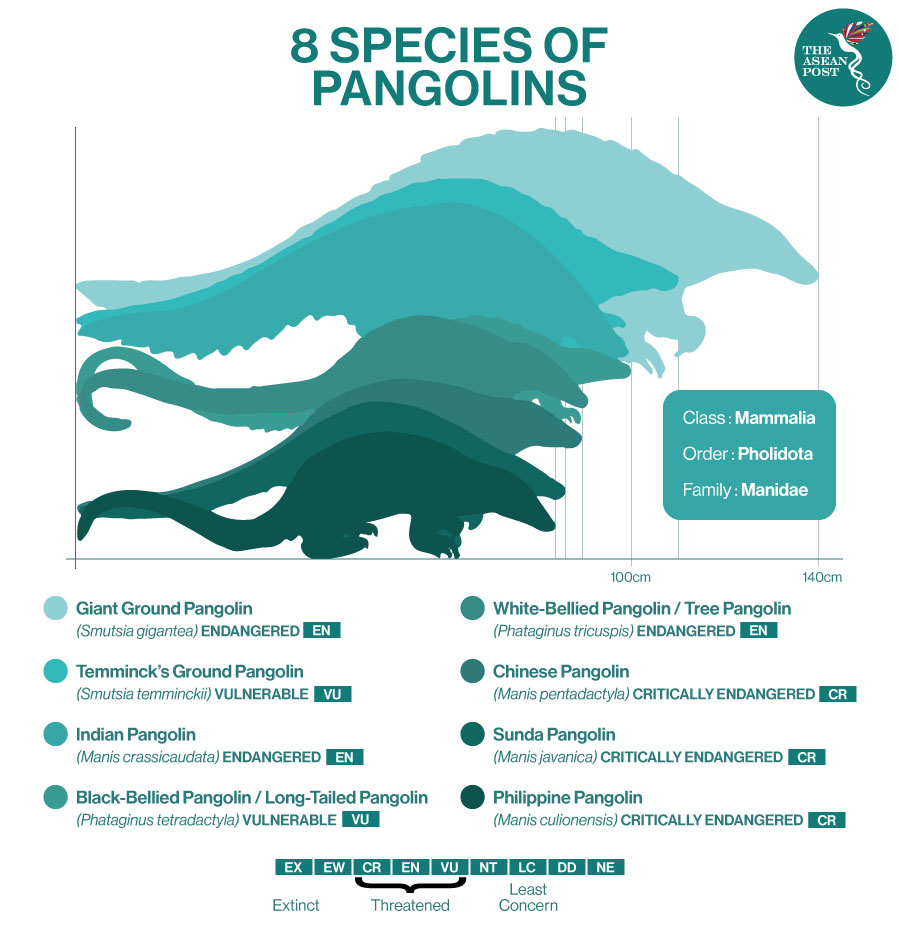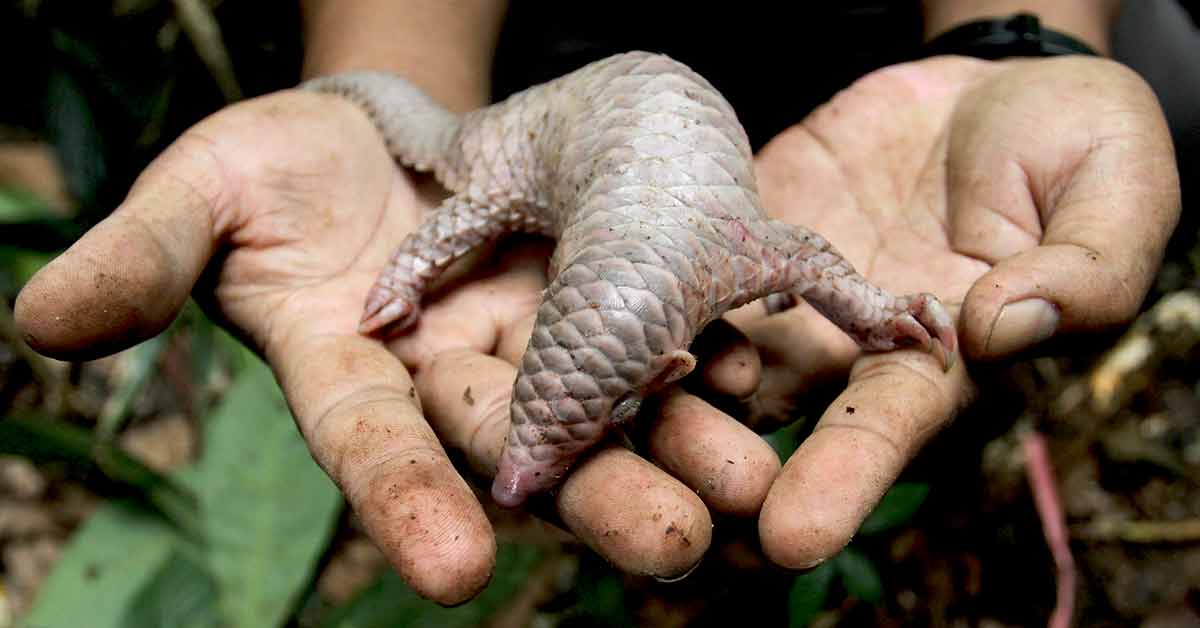The COVID-19 coronavirus is said to have been passed to humans from a wild animal. Since the initial outbreak in Wuhan, China last December, a number of animals have been suspected to be responsible for the COVID-19 virus. It is believed that the disease could have originated from horseshoe bats or snakes. Nevertheless, a study by a team of bioinformaticians from the University of Michigan in the United States (US) suggests that pangolins may have served as the host that transmitted the coronavirus to people and caused the ongoing COVID-19 pandemic.
Pangolins are the only mammals wholly-covered with scales which they use to protect themselves from predators in the wild. According to the World Wide Fund for Nature (WWF), pangolins are perhaps one of the most trafficked mammals in Asia, and increasingly so in Africa. They are especially in high demand in countries like China and Vietnam. Pangolin scales are sometimes used in traditional medicine and folk remedies, while their meat is considered a delicacy in some countries.
After the spread of the COVID-19 virus which has now killed over 700,000 people worldwide, activists and organisations have called for a total ban on wildlife trade for good. According to the United Nations Office of Drugs and Crime (UNDOC), the global wildlife trafficking industry is worth between US$7 billion and US$23 billion, annually.
Unfortunately, despite numerous efforts to halt animal trafficking, illegal wildlife trade still occurs.
A recent report by TRAFFIC, an organisation that monitors the international trade of wild animals and plants – has revealed that illegal pangolin trade in the Philippines increased nine-fold in the last two years, with authorities there confiscating an estimated 6,894 pangolins between 2018 and 2019.
It was reported that the Philippine or Palawan pangolin, a critically endangered species has declined up to 95 percent in the last 40 years.

During the first three months of this year, around 20 Philippine pangolins were confiscated from a trafficker in Palawan and three more retrieval incidents of smuggled pangolins took place on the island of Luzon.
“While the rise in pangolin seizures speaks to successful enforcement action, it is also deeply alarming news for this rare animal,” said Elizabeth John, TRAFFIC’s Senior Communications Officer.
“With pressure continuing to mount, the only hope for the Philippine pangolin is to stamp out the illegal trade through thorough investigations into poaching and trafficking cases, more prosecutions and solid convictions of traffickers,” she added.
Luxury Meat
TRAFFIC also highlighted in its report that ad hoc surveys between 2018 and 2019 made further discoveries of pangolin meat and medicines on offer in some cities.
“Conversations with contacts and restaurant workers pointed to mainland Chinese nationals who are looking to consume wild meat and reportedly willing to pay the high asking price as the primary consumer of pangolins in the Philippines,” noted TRAFFIC in its report.
Media reports have stated that pangolin meat can sell for US$3 to US$5 per kilogram, while scales sell from US$130 to US$190 per kilogram. In Metro Manila, live or frozen pangolins and cooked pangolins can sell for US$233 and US$272, respectively.
Low Penalties?
According to the authors of a research titled, ‘Endangered by Trade: The Ongoing Illegal Pangolin Trade in the Philippines’, lack of investigations, few successful arrests and prosecutions, and low penalties are among some of the challenges in efforts to curb pangolin trafficking in the country.
An example of this is during the first conviction of pangolin traffickers outside Palawan which took place in July 2019. A court in Cavite Province sentenced the three traffickers to only three-months jail and a PHP20,000 (US$394) fine each for illegally transporting 10 pangolins.
Emerson Sy, one of the authors for the TRAFFIC report told the media in the Philippines that the country’s courts should have a deeper appreciation and understanding of the impacts of wildlife crime.
The International Union for Conservation of Nature (IUCN) updated the status of the Philippine pangolin on the IUCN Red List from “endangered” to “critically endangered” back in December 2019. Two African species, the white-bellied and the giant pangolin have also been moved from “vulnerable” to “endangered.” No pangolin species improved in status in the latest assessment.
“Pangolins continue to get hammered by poaching and trade, and extinction is on the horizon for these adorably odd creatures,” said Sarah Uhlemann from the Center for Biological Diversity, a non-profit organisation known for its work in protecting endangered species.
Related Articles:
